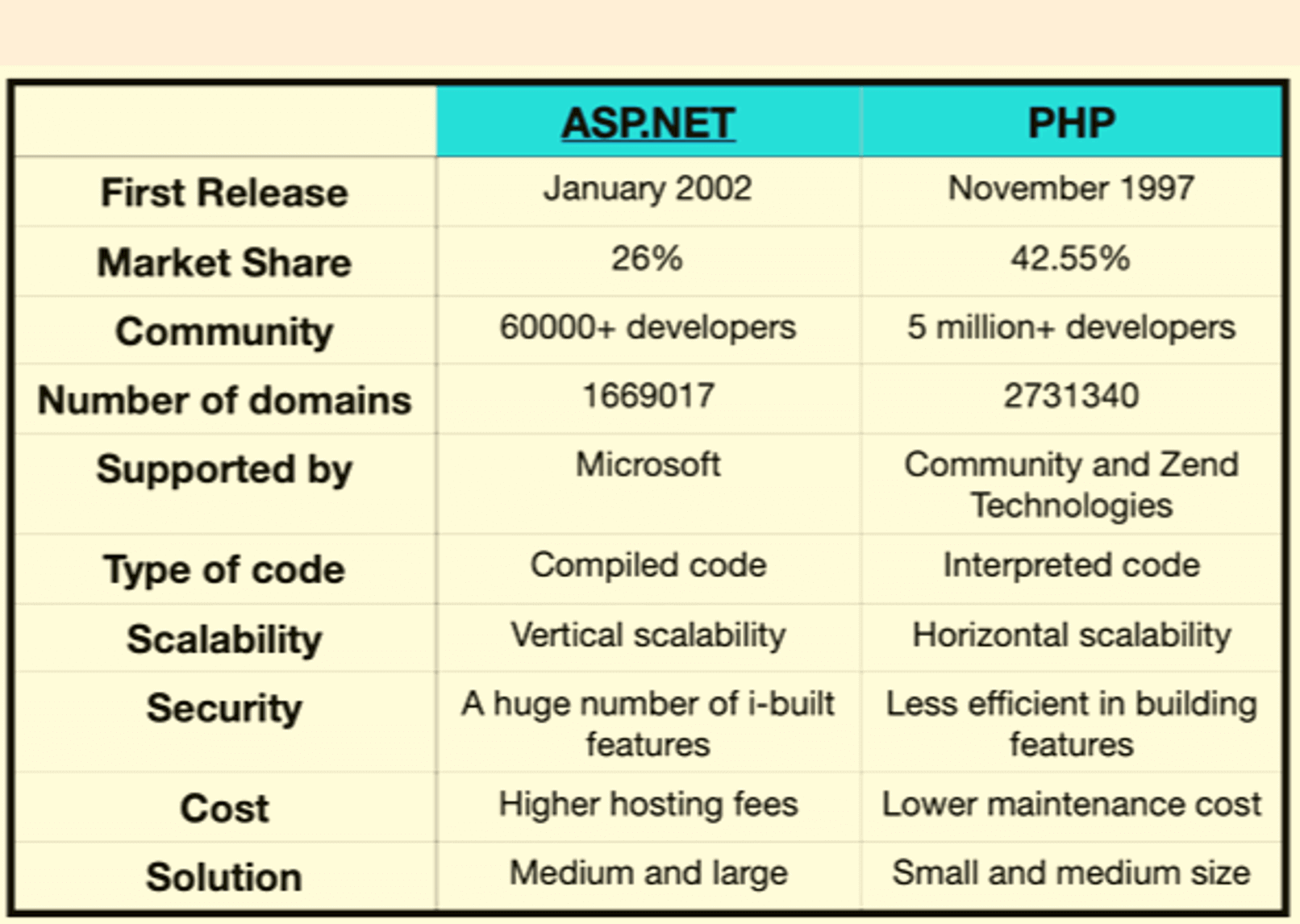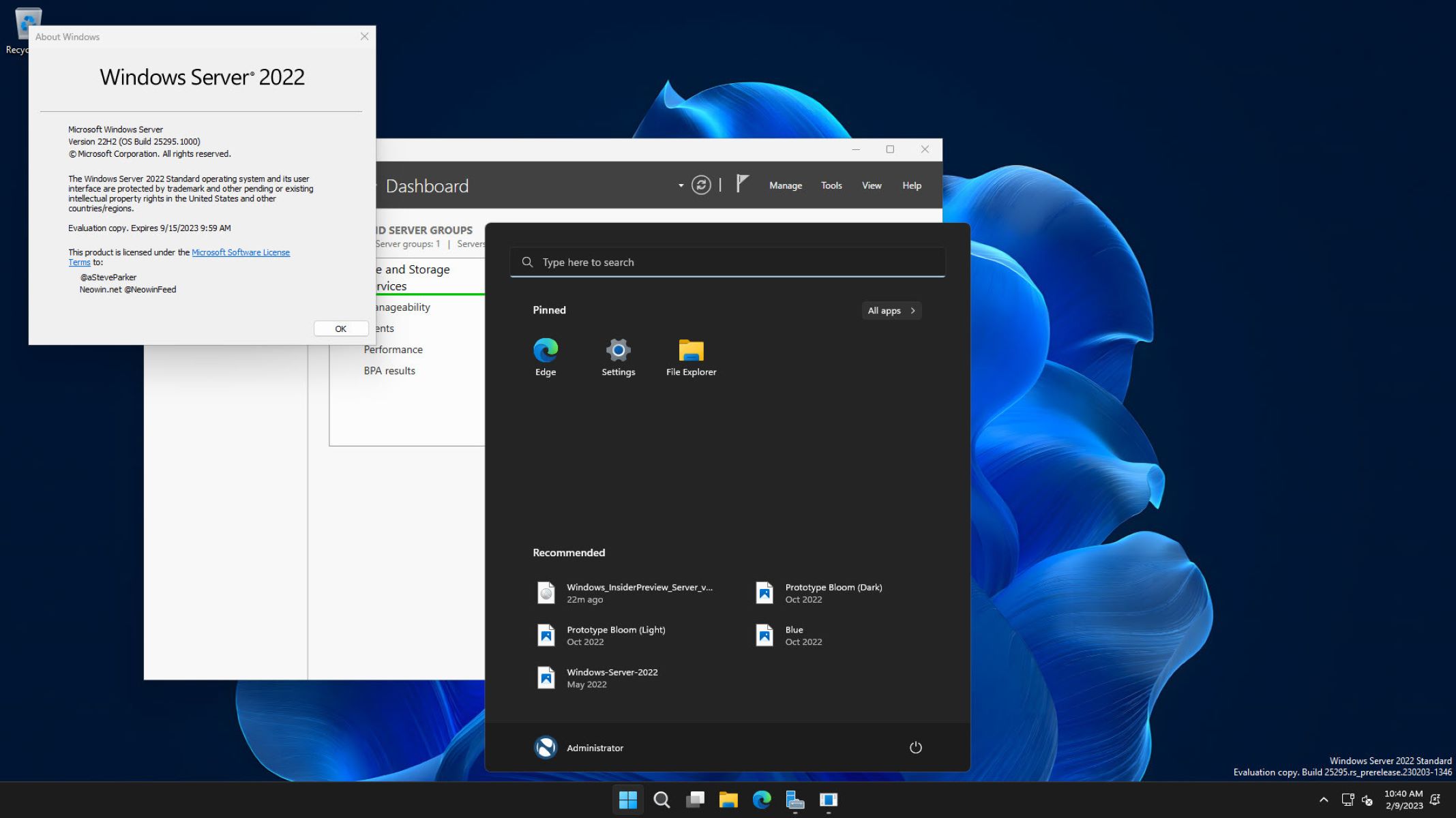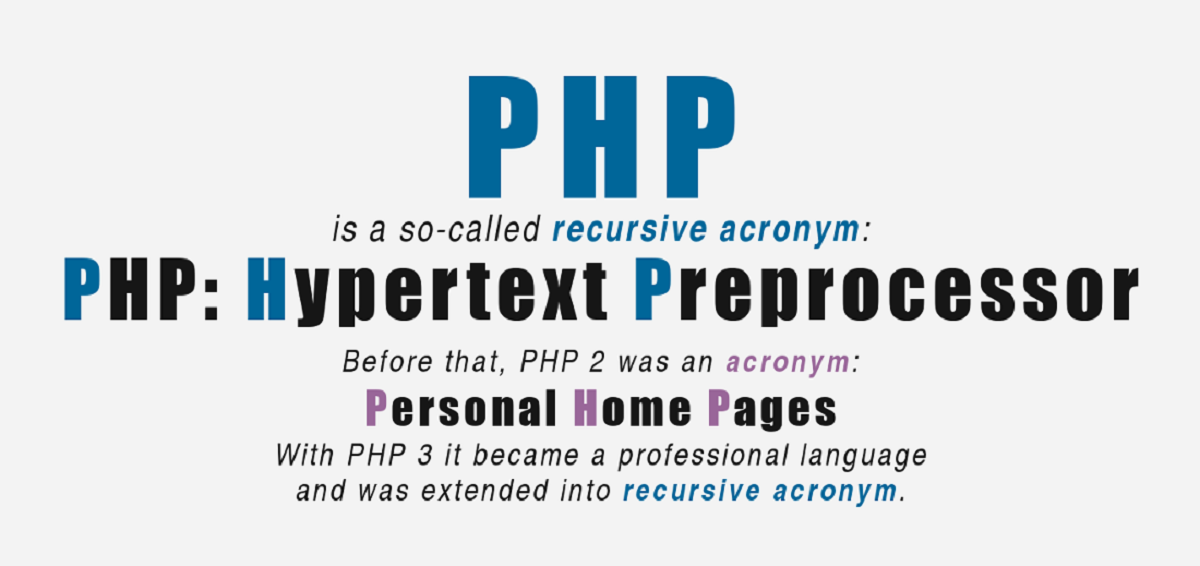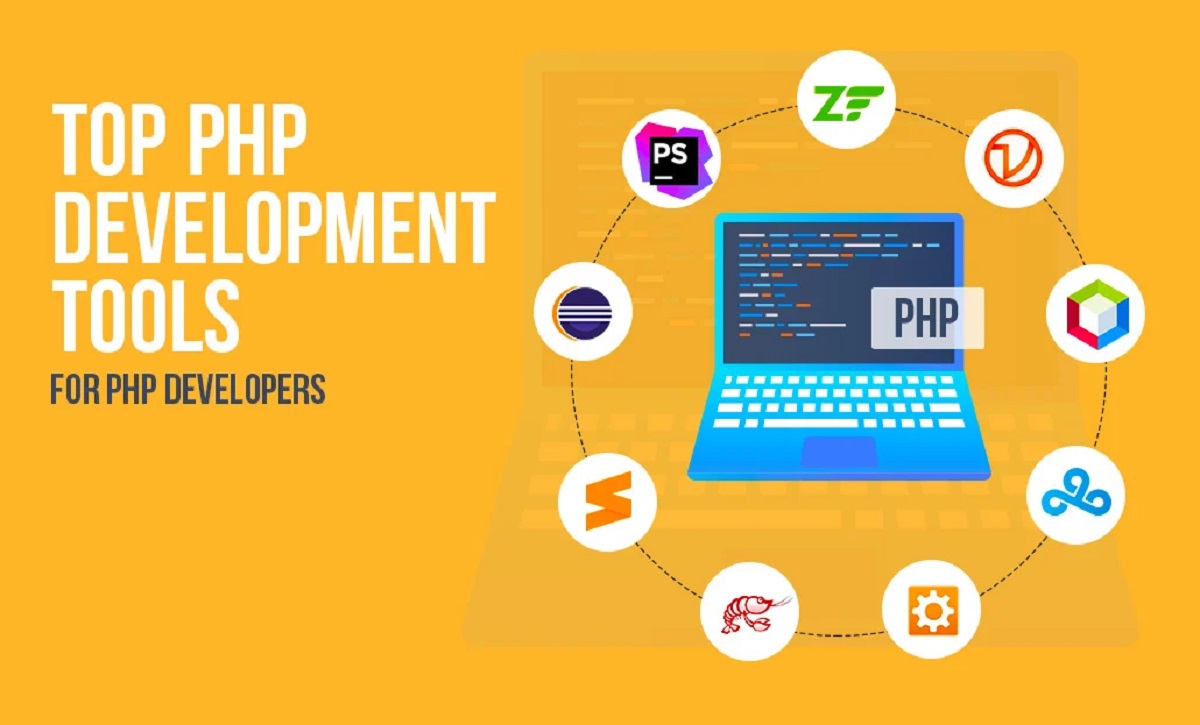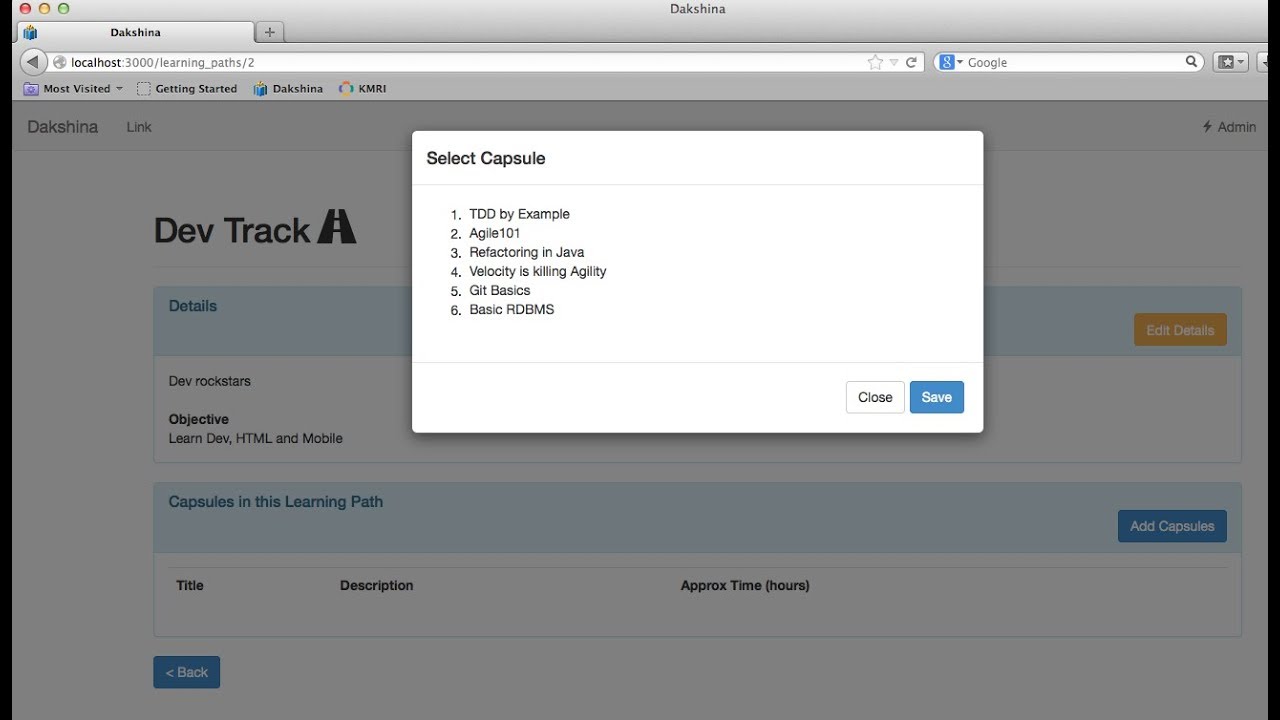Introduction
When it comes to building dynamic and interactive websites, two popular options stand out: ASP (Active Server Pages) and PHP (Hypertext Preprocessor). These server-side scripting languages have been widely used by developers around the world to create dynamic web pages. However, which one is better? In this article, we will compare ASP and PHP based on various factors, such as ease of use, performance, scalability, community support, security, cost, and CMS integration.
ASP is a technology developed by Microsoft, primarily used on Windows servers and integrated with the .NET framework. On the other hand, PHP is an open-source scripting language that runs on various platforms, including Windows, Linux, and macOS, making it more versatile.
While both ASP and PHP have their merits and drawbacks, their differences in terms of ease of use, performance, scalability, community support, security, cost, and CMS integration will ultimately determine which one is a better choice for your specific web development needs. So, let’s dive into the details and see how these two languages stack up against each other.
Ease of Use
When it comes to ease of use, PHP takes the lead over ASP. PHP has a simpler and more intuitive syntax, making it easier for beginners to grasp and start coding. Its syntax is similar to C, Java, and Perl, allowing developers familiar with these languages to quickly adapt to PHP. Additionally, PHP offers a wide range of built-in functions and a vast collection of user-contributed libraries, making it more convenient for developers to accomplish various tasks.
On the other hand, ASP has a steeper learning curve, especially for developers without prior experience with Microsoft technologies. ASP relies heavily on the .NET framework and requires a good understanding of object-oriented programming concepts. The syntax in ASP can be more complex and verbose compared to PHP, which may take some time for beginners to get used to.
Another aspect that contributes to the ease of use is the availability of resources and documentation. PHP has a larger and more active community, providing ample resources, tutorials, and forums where developers can find assistance and discuss solutions to their coding challenges. The vast community support for PHP makes it easier for developers to troubleshoot issues and enhance their skills.
In contrast, ASP has a relatively smaller community compared to PHP. While there are still resources and forums available for ASP development, the abundance of PHP resources makes it more accessible for developers seeking guidance and support.
Overall, PHP’s simplicity, intuitive syntax, and extensive community support make it the preferred choice for developers who prioritize ease of use. However, it is important to note that with sufficient knowledge and experience, developers can become proficient in both ASP and PHP, opening up opportunities to work with a broader range of projects and clients.
Performance
Performance is a critical factor to consider when choosing between ASP and PHP. Both languages have their strengths and weaknesses in terms of performance, and it ultimately depends on the specific requirements of your application.
ASP, being developed by Microsoft and integrated with the .NET framework, offers excellent performance on Windows servers. It benefits from the optimization and advancements of the .NET framework, resulting in efficient execution and faster processing speed. Additionally, ASP provides seamless integration with other Microsoft technologies, such as SQL Server, which can further boost performance for Windows-based applications.
On the other hand, PHP has a lightweight and efficient architecture that enables it to deliver excellent performance on various platforms. PHP is known for its speed and low memory footprint, making it ideal for high-traffic websites and applications. Furthermore, PHP has a vast collection of caching mechanisms, such as opcode caching and data caching, which can significantly enhance performance.
It is worth mentioning that the performance of PHP can be further optimized by utilizing various frameworks and caching techniques, such as Laravel, Symfony, and Memcached. These frameworks and caching mechanisms provide additional performance enhancements and improve the overall speed and responsiveness of PHP applications.
However, it is important to note that the performance of both ASP and PHP also depends on factors such as server configuration, database optimization, code efficiency, and overall application design. Careful consideration of these factors and proper optimization can result in improved performance for both languages.
In general, ASP may have an edge in performance on Windows servers due to its integration with the powerful .NET framework, while PHP offers excellent performance across different platforms and benefits from the extensive caching mechanisms available. Ultimately, the performance aspect should be evaluated based on the specific requirements of your project and the resources available for optimization.
Scalability
Scalability is a crucial consideration when choosing a server-side scripting language for your web application. Both ASP and PHP offer scalability options, but they differ in terms of flexibility and ease of scaling.
PHP is renowned for its scalability, thanks to its lightweight nature and extensive support for various platforms and technologies. PHP applications can easily be scaled horizontally by adding more servers to distribute the workload. PHP is compatible with popular server configurations such as Apache and Nginx, making it easier to deploy applications on different servers.
Furthermore, PHP has a vast collection of well-established frameworks, such as Laravel, Symfony, and CodeIgniter, which provide built-in scalability features. These frameworks offer tools and libraries that assist in building highly scalable applications. Additionally, PHP-based applications can leverage caching mechanisms, load balancers, and other scalability techniques to handle increasing traffic and user demand.
ASP, on the other hand, is tightly integrated with the .NET framework and primarily used on Windows servers. While ASP can also be scaled horizontally by adding more servers, it may require additional configuration and setup to ensure proper load balancing and distribution of resources.
When it comes to vertical scalability, both ASP and PHP can handle it effectively. Vertical scalability involves upgrading hardware resources such as the server’s CPU, memory, and storage to accommodate growing demands. Both languages can take advantage of the underlying server infrastructure to improve performance and handle increased traffic.
In terms of ease of scaling, PHP has a slight advantage due to its platform compatibility and the availability of robust frameworks and technologies. The lightweight nature of PHP and its ecosystem make it easier to scale applications horizontally, making it a popular choice for large-scale projects.
However, it is important to note that both ASP and PHP can be scaled effectively with proper planning, architecture, and optimization. The scalability of a web application also depends on factors such as database design, caching mechanisms, and efficient code implementation.
Community and Support
The community and support surrounding a programming language play a vital role in the success and growth of any developer. Both ASP and PHP have their dedicated communities, but PHP undoubtedly has a more extensive and active community.
PHP has been around for a long time and has garnered a massive following of developers worldwide. This large community means that there are countless online resources, forums, and documentation available for PHP. From official documentation to community-driven forums and tutorials, developers can find solutions to their coding challenges and seek guidance when needed.
Moreover, the PHP community is constantly evolving, with developers contributing to the language’s ongoing development and improvements. This active community ensures that PHP remains up-to-date with the latest trends, security patches, and feature enhancements.
ASP, being a Microsoft technology, also has a dedicated community of developers, but it is relatively smaller compared to PHP. The ASP community tends to be more focused on specific aspects of Microsoft technologies and platforms. However, developers can still find valuable resources, forums, and support related to ASP and the .NET framework.
Additionally, ASP and .NET benefit from Microsoft’s support and documentation. Microsoft offers an extensive knowledge base, tutorials, and official documentation for their technologies, including ASP and the .NET framework. The support provided by Microsoft can be valuable for developers working in Windows-centric environments.
In summary, while both ASP and PHP have their respective communities and support systems, PHP’s larger and more active community provides developers with a vast amount of resources and support. The active community ensures that PHP remains vibrant and up-to-date, making it easier for developers to find assistance and stay on top of the latest industry trends.
Security
When it comes to the security of your web applications, both ASP and PHP have their measures in place. However, there are some differences in how each language approaches and handles security.
ASP, being a Microsoft technology, benefits from the security features provided by the Windows server environment. The extensive security measures implemented in Windows servers, such as user access controls, firewalls, and malware protection, contribute to the overall security of ASP-based applications.
Additionally, ASP integrates well with other Microsoft technologies like SQL Server, which offers robust security features, including encryption, authentication mechanisms, and secure database handling.
On the other hand, PHP, being an open-source language, relies on its community and developers to ensure the security of applications. The PHP community is known for its proactive approach to security, with regular updates and patches released to address any vulnerabilities. Popular frameworks like Laravel and CodeIgniter also provide built-in security features, making it easier for developers to implement secure coding practices.
However, it is important to note that the security of a web application is not solely dependent on the programming language. Secure coding practices, input validation, and proper handling of user input are vital for maintaining the security of any application, regardless of the language used.
Both ASP and PHP have their share of vulnerabilities and risks. It greatly depends on the developer’s knowledge and implementation of security measures to ensure the application’s safety.
Overall, while ASP benefits from the security features provided by the Windows server environment, PHP’s active and vigilant community plays a crucial role in identifying and addressing security vulnerabilities. Implementing secure coding practices and staying updated with security measures is key to ensuring the security of web applications in both ASP and PHP.
Cost
When considering the cost of using ASP or PHP for web development, there are several factors to take into account. Here, we will examine the cost aspects associated with both languages.
PHP, being an open-source scripting language, is completely free to use. There are no licensing fees or costs associated with PHP itself. This makes it an attractive option for startups, small businesses, and developers on a budget. Additionally, PHP runs on multiple platforms, including Linux, which reduces the cost of hosting as compared to Windows-based hosting for ASP.
However, it is worth mentioning that while PHP itself is free, additional costs may arise depending on the tools, frameworks, and third-party libraries used in the development process. Some frameworks or libraries might have their own licensing and support costs associated with them. Nonetheless, these costs are typically optional and can be tailored to fit the budget of the project.
In contrast, ASP is a Microsoft technology that requires licenses for servers running Windows and other Microsoft products. This can significantly increase the overall cost of hosting and development, especially for small businesses and startups operating on a limited budget.
Additionally, if you choose to use certain Microsoft tools or frameworks specific to ASP, such as Visual Studio, there may be additional costs involved for licensing and support.
Another cost consideration is the availability of developers. PHP has a larger community and a broader pool of developers compared to ASP. This means that finding skilled PHP developers is generally easier and, potentially, more cost-effective than finding experienced ASP developers.
Overall, PHP offers a more cost-effective solution due to its open-source nature, compatibility with various platforms, and availability of free development tools and frameworks. However, it is important to consider the specific requirements of the project and weigh the potential costs associated with third-party tools and libraries used in PHP development.
CMS Integration
Content management systems (CMS) are widely used for creating and managing website content efficiently. Both ASP and PHP offer compatibility with various CMS platforms, but the extent to which they integrate differs.
PHP has a strong foothold in the CMS market, with popular and widely-used platforms like WordPress, Joomla, and Drupal built on PHP. These CMSs provide a user-friendly interface, extensive plugin support, and a vast ecosystem of themes and templates, making it easier to create and manage content-rich websites.
WordPress, in particular, is a dominant player in the CMS market and powers a significant percentage of websites worldwide. Its extensive plugin library and community support make it a go-to CMS for non-technical users and developers alike.
ASP, on the other hand, has a smaller presence in the CMS market compared to PHP. However, there are CMS platforms available for ASP, such as Umbraco and Sitecore, which offer robust features and enterprise-level capabilities.
While the number of CMS options for ASP is limited, it is worth noting that ASP can integrate well with other Microsoft technologies and platforms, such as SharePoint, which provides advanced content management capabilities for enterprise-level websites.
It is important to consider the specific requirements of your project when choosing a CMS platform. If you require a wide range of choices, a vibrant community, and extensive plugin support, PHP-based CMS platforms like WordPress may be the ideal choice. However, if you are working on an enterprise-level project and require integration with other Microsoft technologies, ASP and CMS platforms like Umbraco and Sitecore may be a better fit.
Overall, when it comes to CMS integration, PHP has a broader range of options and a larger community ecosystem, while ASP offers compatibility with specific CMS platforms and integration with other Microsoft technologies for enterprise-level applications.
Conclusion
When it comes to choosing between ASP and PHP for web development, there is no definitive answer as to which language is better. Both ASP and PHP have their strengths and weaknesses, and the choice ultimately depends on your specific project requirements, personal preferences, and the resources available to you.
In terms of ease of use, PHP has a simpler and more intuitive syntax, making it an ideal choice for beginners and developers who prioritize ease of learning. However, ASP offers a robust framework and integrates well with other Microsoft technologies, making it a solid option for Windows-based projects.
When it comes to performance, both languages offer excellent capabilities. ASP benefits from its integration with the powerful .NET framework, while PHP’s lightweight architecture and caching mechanisms contribute to its impressive speed and scalability.
Community and support play a crucial role in a developer’s journey, and here, PHP excels. The PHP community is larger, more active, and provides a wealth of resources, tutorials, and forums for support. However, ASP benefits from the backing of Microsoft and its extensive documentation and support.
Security-wise, both languages offer measures to ensure the safety of web applications. ASP benefits from the security features provided by the Windows server environment, while PHP relies on its active community and proactive approach to security.
In terms of cost, PHP has an advantage as it is open-source and has no associated licensing fees. ASP, on the other hand, may require additional costs for licenses and hosting on Windows-based servers.
When it comes to CMS integration, PHP has a stronger presence with a wider range of options, including popular platforms like WordPress, Joomla, and Drupal. However, ASP offers compatibility with platforms like Umbraco and Sitecore, along with integration with other Microsoft technologies.
In conclusion, the choice between ASP and PHP depends on various factors, such as ease of use, performance, scalability, community support, security, cost, and CMS integration. Evaluating your project requirements and considering each language’s strengths and weaknesses will help you make an informed decision and choose the best language for your web development needs.







